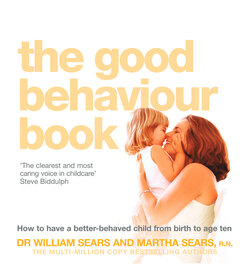Читать книгу The Good Behaviour Book - Марта Сирс - Страница 10
consult the experts
ОглавлениеWhen I counsel paediatric students about to enter practice, I tell them: “Surround yourself with wise and experienced parents, and learn from them.” These are the true discipline experts. In fact, much of the material in this book comes from veteran parents in our practice who shared their successes and failures with us. In formulating our own philosophy of discipline we took note of what these wise disciplinarians did and how their kids turned out. This is what we learned: wise disciplinarians spend time and energy keeping one step ahead of their child and setting conditions that promote good behaviour, leaving the child fewer opportunities to misbehave. Wise disciplinarians
• stay connected to their children
• develop a mutual sensitivity between parent and child
• spend more time promoting desirable behaviour, so they need less corrective discipline
• have a working understanding of age-appropriate behaviour
• use humour to promote cooperation in the child
• are able to get behind the eyes of their child and redirect behaviour
Love for your child makes you vulnerable to any advice that promises to create a bright and well-behaved child. One of our goals in this book is to sharpen your sensitivity so that you learn to discern between advice that creates a distance between you and your child and advice that draws you closer together. Pick advisers who have raised lots of children and whose kids you like. Make friends with them, watch them in action, and learn from them.
Yes, you must take charge of your child, but not in a controlling way. Yes, you should communicate with your child, but in the context of a trusting relationship. Yes, you need discipline tools to help you handle real-life situations, but when these techniques don’t work, you need to fall back on a deeper understanding of your child. With an attachment approach to discipline, you can have confidence that your child will (for the most part) behave well and develop the inner controls needed to live a happy, productive life. Where the authoritarian approach says, “I’ll tell you what to do”, the communication approach says “What do you think is the right thing to do?” and the behaviour modification approach says “If you do that, then this will happen”, our suggestion is to give your child the attachment message “You can trust me to help you know what to do.”
Strong parent – child connection.
Weak parent – child connection.
In the next section we will give you an overview of the attachment approach to discipline. You will see how all these other approaches fit into the total package. Remember that discipline is a package deal, and that all the separate parts must be held together by a right relationship with your child.
